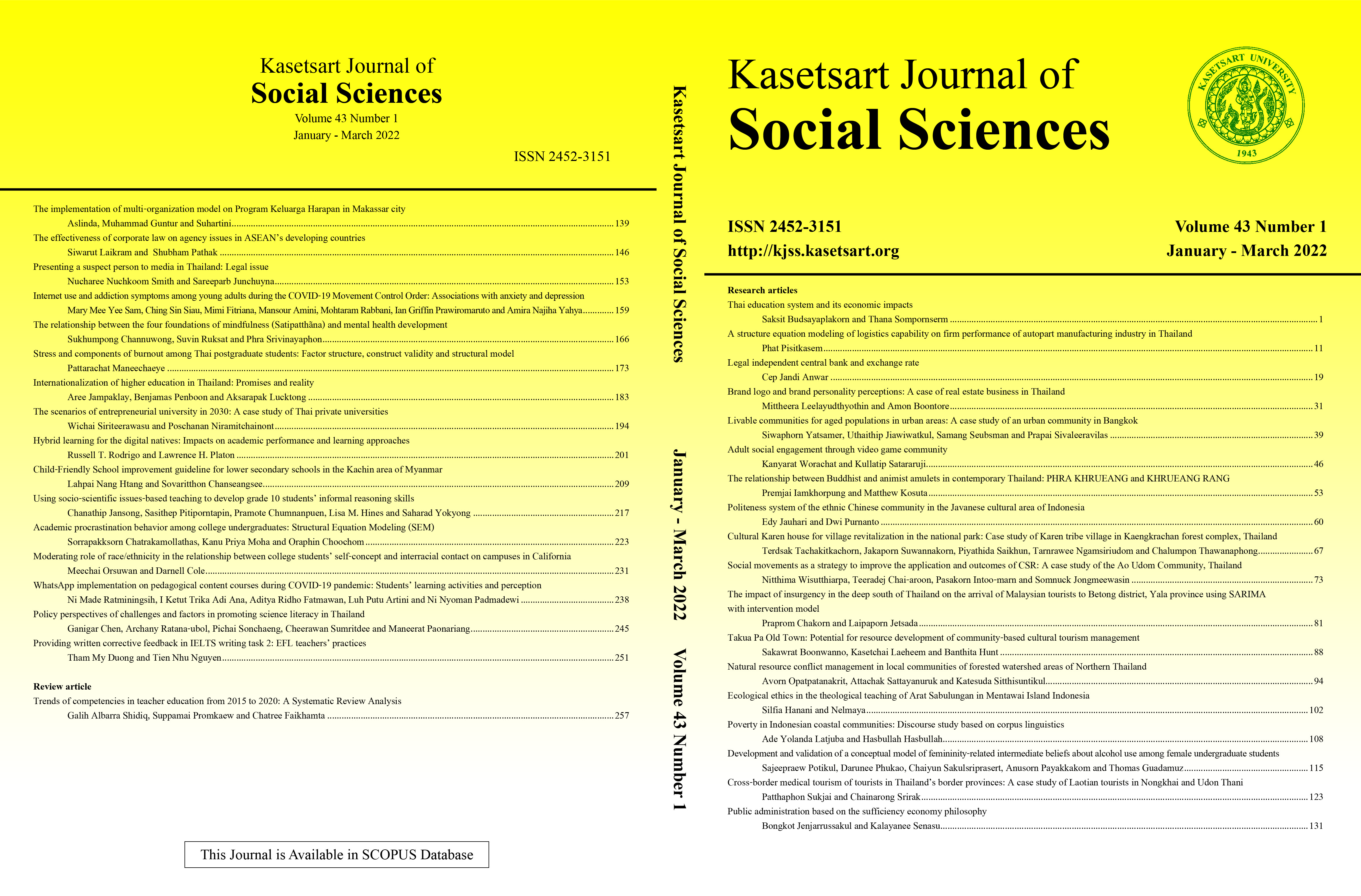WhatsApp implementation on pedagogical content courses during COVID-19 pandemic: Students’ learning activities and perception
คำสำคัญ:
learning activities, pedagogical content courses, perception, WhatsAppบทคัดย่อ
This study attempted: (1) to describe the teaching and learning activities using WhatsApp; and (2) to determine the students’ perception of the implementation as a platform of online learning. This research was descriptive qualitative research utilizing observation of one lecturer and survey delivered to 117 students who took pedagogical content courses. The observation was conducted during one academic semester teaching in 2020 by using a journal note and a survey using a questionnaire that contained 20 items. There were four dimensions determined in the questionnaire: ease/relevance, before learning, during learning, and benefits of WhatsApp. Among 117 respondents involved in this study, there were 83 undergraduate students and 34 postgraduate students. The study proved there were nine learning activities done by the students in the main and post-activity phases. Such activities included sending the written summary on the pedagogical content knowledge and link of the video of oral presentation and simulation, discussion through questions and answers, giving additional comments, giving conclusions, and giving feedback. The study also revealed that the perception of the students on WhatsApp utilization was very positive. They strongly agreed that it was comfortable and relevant to use during the COVID-19 pandemic and helped them improve oral and written communication skills. Moreover, they confirmed it increased their critical thinking through discussion activity conducted before and during learning. Thus, it enhanced their understanding of the pedagogical content knowledge materials.
ดาวน์โหลด
เผยแพร่แล้ว
รูปแบบการอ้างอิง
ฉบับ
ประเภทบทความ
สัญญาอนุญาต
ลิขสิทธิ์ (c) 2022 Kasetsart University

อนุญาตภายใต้เงื่อนไข Creative Commons Attribution-NonCommercial-NoDerivatives 4.0 International License.
This is an open access article under the CC BY-NC-ND license http://creativecommons.org/licenses/by-nc-nd/4.0/










